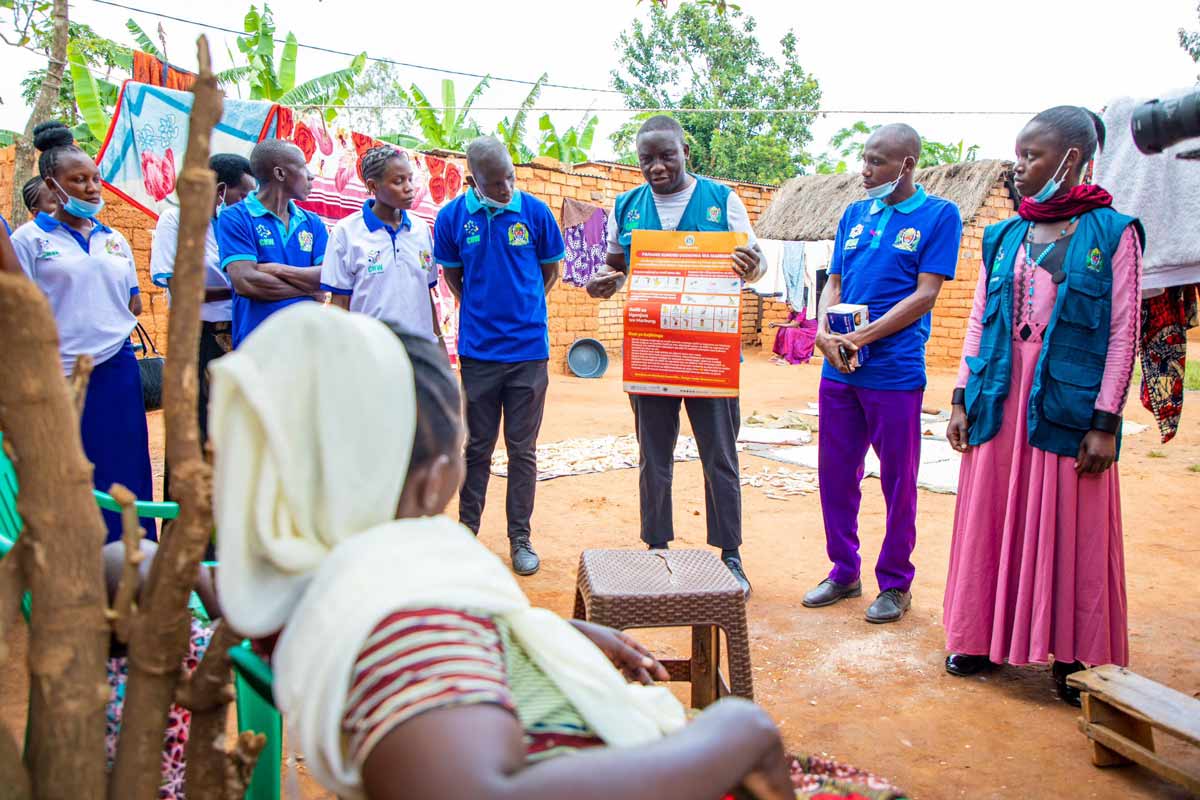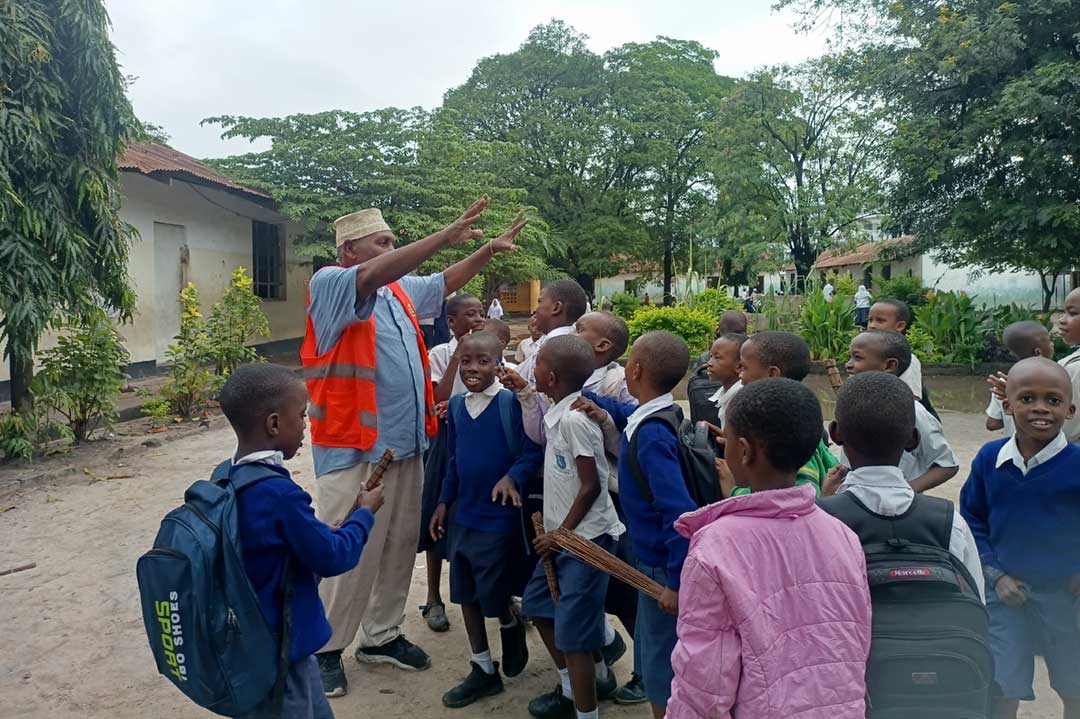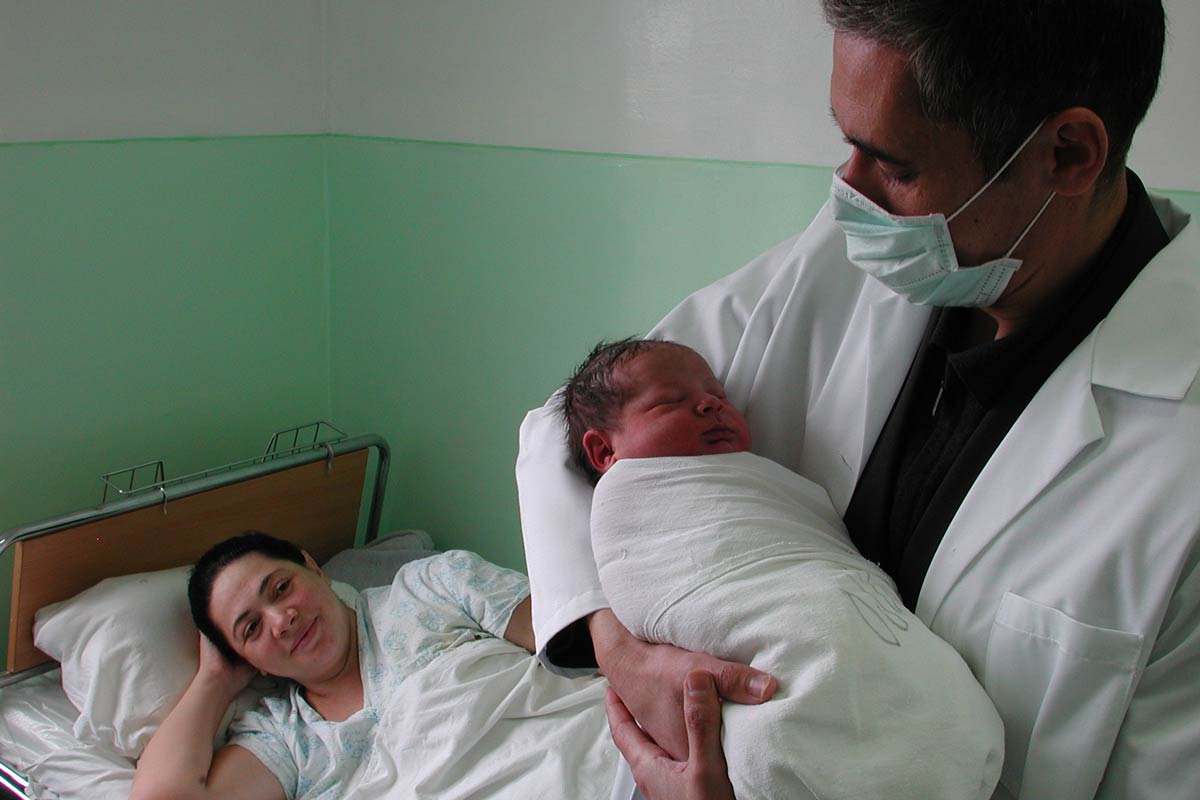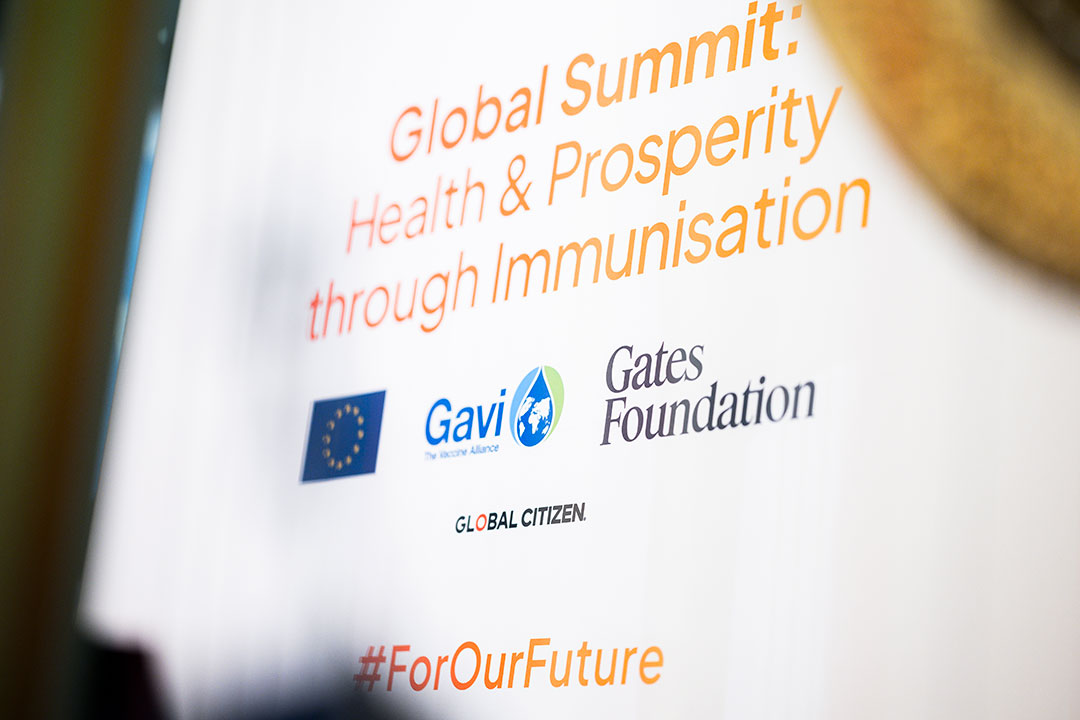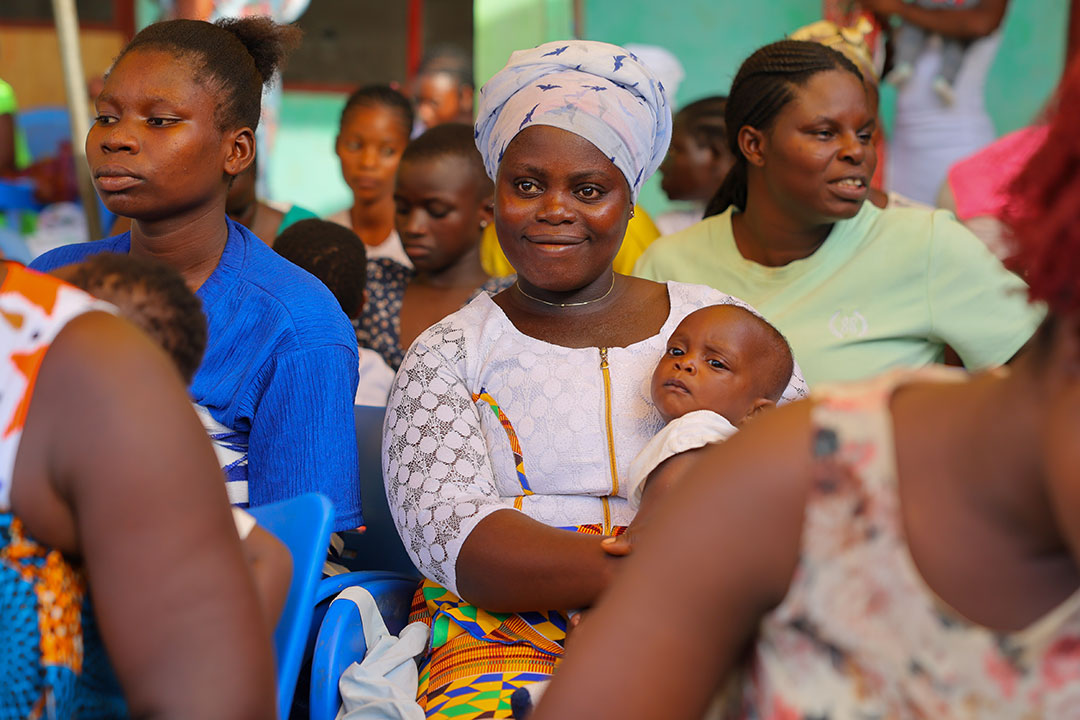In Zanzibar schools, HPV jabs come as part of a teen health package
A new initiative is uniting HPV vaccination with other health services in Zanzibar schools, with cancer survivors among those helping teach adolescents what’s at stake.
- 7 October 2024
- 7 min read
- by Syriacus Buguzi
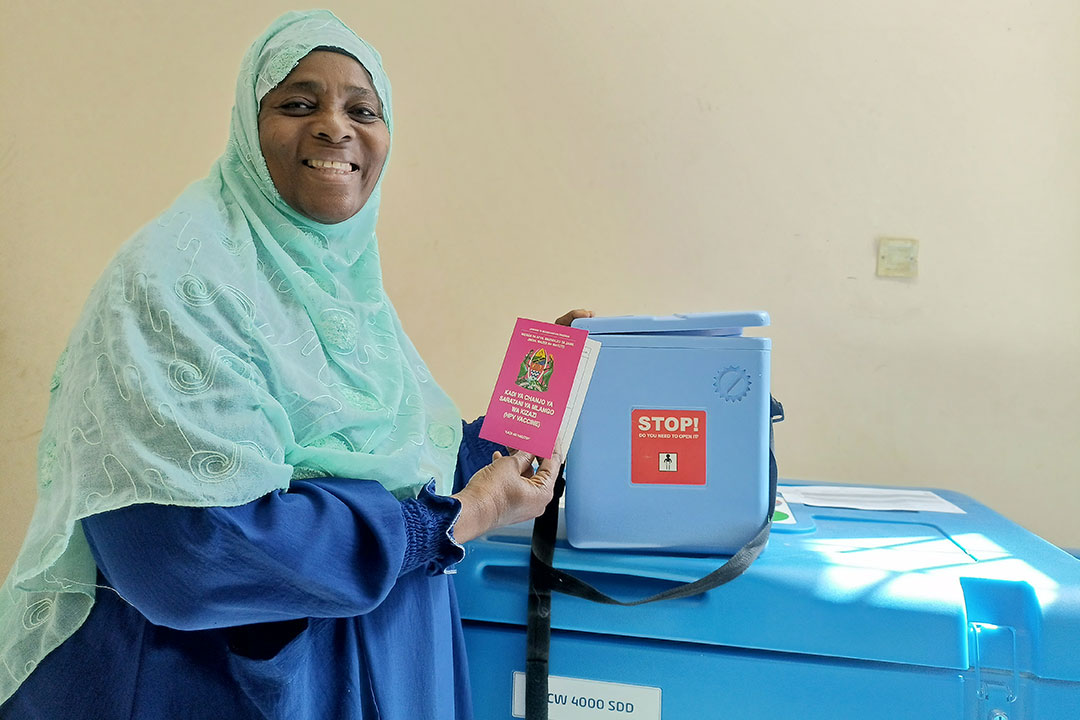
You don’t need to tell teacher Mohammad Juma of Al-Haramyn School in Zanzibar how delicate discussing health in the classroom can be. With more than five years’ experience on the job, he’s keenly aware that, especially around adolescents in the throes of rapid physical and emotional change, sensitivities can run high.
But recently, a special project convinced Juma that inviting the health care system into schools could be profoundly beneficial.
“Seeing me in those photos, the children were shocked. They realised that cancer could happen to anyone, even someone they are seeing and whom they respect.”
- Ruzuna Abdurahim Mohammed, the In-Charge of Advocacy in the Maternal and Child Health Unit at Kidongo Chekundu Mental Hospital in Zanzibar
“When it comes to educating adolescents in school, I now have a broader view of what it means,’’ says Juma. Last year, he was a teacher in a team that bundled the cancer-blocking human papillomavirus (HPV) vaccine with other adolescent health services, and brought those services into Zanzibar schools.
A new model
“Dubbed “HPV Plus,” the project started five years ago as a Gavi-funded pilot in Tanzania’s Dar es Salaam and Njombe regions, initially reaching a strictly limited number of facilities. However, the project quickly generated its own momentum and expanded to cover six district councils in Njombe by 2020. With UNICEF support, its scope broadened further in 2021 to include Mbeya and Songwe regions.
In 2023, the project expanded its scope to include the Zanzibar Archipelago, covering Unguja and Pemba Islands, in a collaborative effort between Momentum Country Global Leadership Programme (MCGL), Jhpiego, and USAID. Here, it reached 183 facilities across 11 district councils, sweeping into 505 primary schools and more than 300 secondary schools.
"We had four interventions running at once," says Dr Saleh , EPI Manager for Zanzibar. "Immunisation, adolescent reproductive health education, eye-vision and nutritional status [assessments].” He emphasised that the project structure demanded a rare alliance between the health sector, the education sector and a consortium of funders, all with the goal of reaching 24,000 girls with HPV vaccination across the isles.
“As teachers, we underwent seminars on how to offer comprehensive adolescent group education – including [on] vaccination, visual and nutritional assessments,” says Juma. The work also drafted in health teams consisting principally of nurses, who provided vaccinations. District-level oversight, meanwhile, was provided by supervisory squads that included a medical officer, a nutrition officer, an immunisation officer and an eye specialist.
Finding the “right key”
Ruzuna Abdurahim Mohammed, the In-Charge of Advocacy in the Maternal and Child Health Unit at Kidongo Chekundu Mental Hospital in Zanzibar, was on the ground as part of the team going school-to-school to provide reproductive health education. Girls and boys aged between 10 and 14 years received reproductive health education, she says, and girls who were eligible, received HPV vaccination at school, an approach she describes as strategic – akin to “finding the right key to unlock the door”.
“These [girls and boys] are future parents. When they know the value of good nutrition and protecting themselves against sexually transmitted infections at an early age, they will be safe in future and they will protect their children as well,’’ she says, emphasising that a school-based approach helped to them to efficiently reach the target population, unlike house-to-house outreach.
In just four days of project implementation, Dr Saleh says, Zanzibar managed to vaccinate 20,000 girls, increasing HPV vaccination coverage from 14% to an impressive 85%.
There were challenges, however. Mohammed recalls a particularly difficult experience at a school on Pemba, an island in the archipelago known to have lower than average vaccination coverage. While the project’s school-based approach had proven effective in other areas, Mohammed encountered resistance here from children who were hesitant about the HPV vaccine.
“It was a real setback,” Mohammed recounts. Determined to overcome this hurdle, she decided to share her personal story as a breast cancer survivor. She believed that her experience could resonate with the children, and help them understand the gravity of the risk they faced. Infection with the HPV virus underlies almost every case of cervical cancer.
“I knew I had to connect with them on a deeper level,” Mohammed explains. “Sharing my own struggle with cancer was a way to make the abstract concept of HPV and cervical cancer more tangible.”
Mohammed gathered photos from her treatment days, when she was frail and unwell. She used these images to illustrate the devastating effects of cancer, emphasising the importance of prevention.
“Seeing me in those photos, the children were shocked,” Mohammed recalls. “They realised that cancer could happen to anyone, even someone they are seeing and whom they respect.”
She says the impact of her testimony was immediate. “Eight children who had previously been hesitant to get vaccinated changed their minds after hearing my story.”
“It was a powerful moment,” Mohammed says. “The children understood that by getting vaccinated, they were taking a proactive step to protect their health and prevent future suffering.”
Hitting milestones
The HPV vaccine was introduced in Zanzibar in 2018, according to Zanzibar’s Expanded Programme on Immunisation (EPI). However, until the HPV Plus project was rolled out, coverage stood at just 14% across the archipelago. The HPV Plus project sought to remedy that and spur the islands on towards the Global Cervical Cancer Elimination Agenda’s target: that 90% of girls should be vaccinated against HPV by age 15.
And by integrating adolescent health services – including HPV vaccination, sexual reproductive health education, nutrition, and eye care – the project aimed to make the most of an opportune intersection between the health care system and an age-group that risks being a little alienated from it.
The eye care component of the HPV Plus bundle provided a case-in-point. By conducting eye health screening, the project team identified a number of adolescents who had undiagnosed vision problems – many of whom had no idea that they were falling behind in class principally because they needed glasses.
"When we were examining their eyes using visual assessment chart, we were able to pinpoint adolescent boys and girls with visual acuity issues," says Dr Mary Rose Giattas, Project Director of MOMENTUM Country and Global Leadership (MCGL), who was on the ground. “Many of these young people were unable to read the smaller letters on the chart. This indicated that they needed further evaluation and intervention.”
Those with low visual acuity were referred to specialist eye care providers at referral hospitals for comprehensive assessment and treatment, she says, explaining that the project provided glasses to those who needed them, while others were referred for further treatment.
"If someone would ask me to recommend an approach that will deliver on HPV vaccination effectively, I would prefer to do the HPV Plus, because it is a unique approach, but also it attracts the [target group] to services. Apart from just providing vaccine services, you give a package of interventions," Dr Saleh says.
Meantime, eligible kids who were not in school were reached with the HPV vaccination by other routes. "We had an opportunity to ensure that all out-of-school girls are reached through community leaders known in Zanzibar as Shehas," Dr Saleh tells VaccinesWork.
Rapid results
In just four days of project implementation, Dr Saleh says, Zanzibar managed to vaccinate 20,000 girls, increasing HPV vaccination coverage from 14% to an impressive 85%.
Moreover, as of March 2024, reports from project implementers show that the HPV Plus project in Zanzibar has reached 57,161 adolescents with its curriculum of education. Twenty-seven trainers and 183 health care providers were equipped with the necessary skills to implement the programme.
The project also managed to screen over 34,000 students for visual acuity, and more than 35,000 for malnutrition. These screenings led to over 900 referrals for further care, according to information from the reports.
Dr Giattas says the project also “leveraged the strong parent-school relationship by distributing educational materials during teacher-parent meetings and utilising WhatsApp groups. Social media, especially WhatsApp and Facebook, proved invaluable in reaching adolescents both in and out of school."
Dr Giattas acknowledged challenges, such as school exams clashing with vaccination campaigns. "Overcoming vaccine hesitancy among girls, parents, and the community was also crucial," she adds. "Information campaigns have been instrumental in boosting vaccine acceptance.”
While HPV vaccination is at this point restricted to girls, the programme also serviced boys' health. "We believe in a holistic approach," Dr Giattas says. Teaching boys about Adolescent Sexual and Reproductive Health (ASRH) issues was an opportunity to promote gender equality, she notes.

